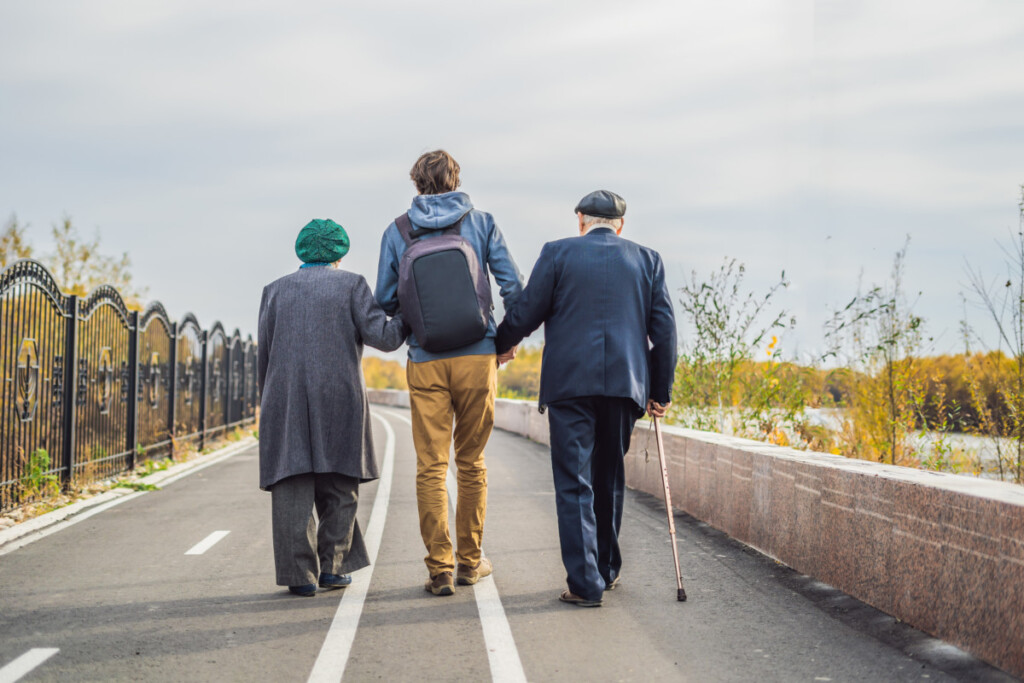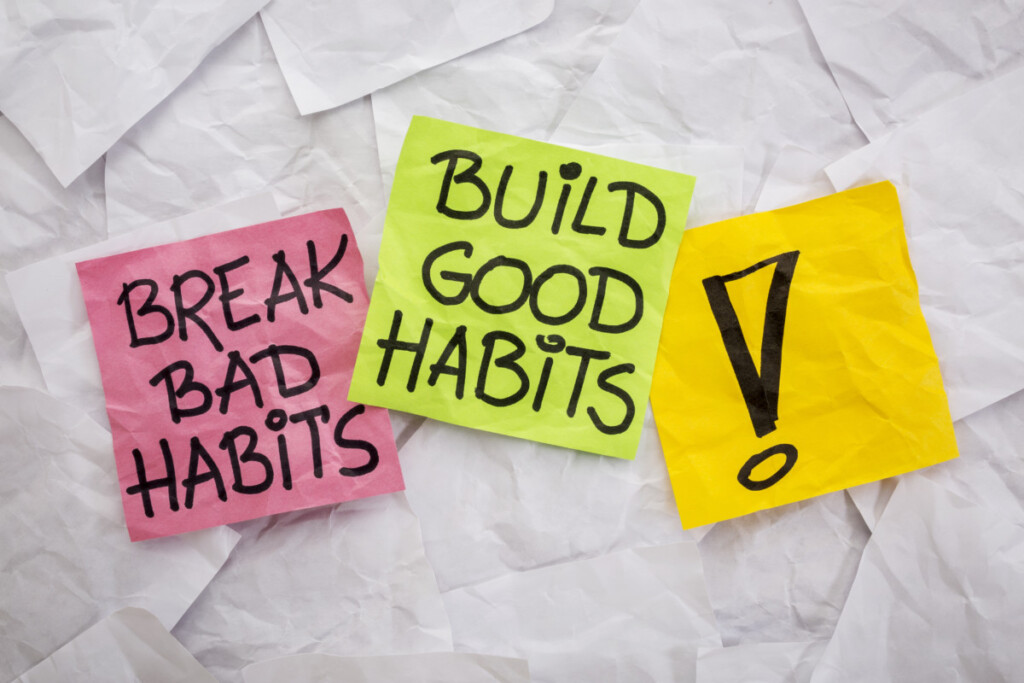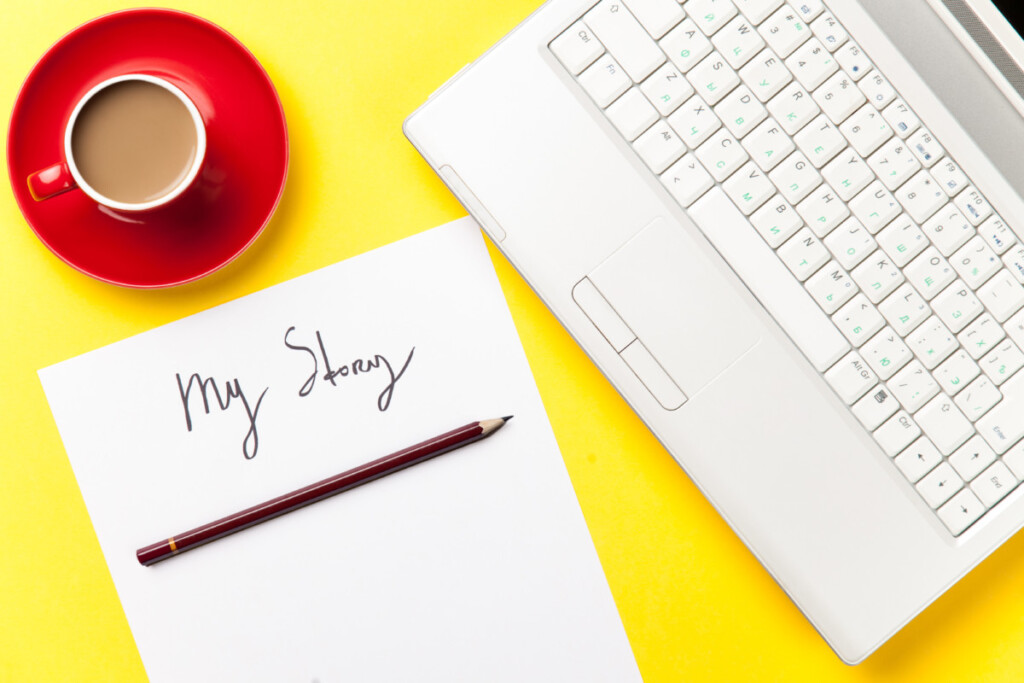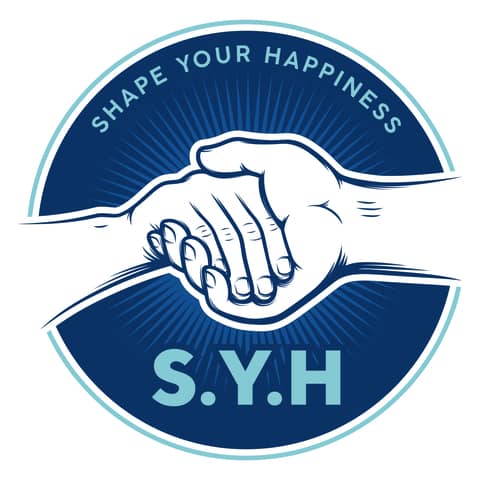Life is chaotic. Even when you’re free of enemies and have all you want, there will always be things that work against you. The ever-changing details of life can be overwhelming and exhausting. It’s not always a fight against others; sometimes the biggest enemy is yourself.
How can you be your own hero in a world seemingly full of villains? You can become your own hero when you discover what you stand for and stay committed to your virtue. Define what it means to be a hero and then live by this as passionately as you can. Becoming a hero doesn’t happen overnight. With every great story, there are always challenges and roadblocks the hero must grow through.
But that doesn’t mean the journey can’t be fun and exciting. Becoming your own hero first starts by you defining heroism. Then you must quiet that inner critic that tears you down, eventually replacing all bad habits with good ones. It is then that you can create your story and become an inspiring hero to others.
Define Heroism

In the United States alone, 16.2 million people suffer from depression. This number is just what we can diagnose. Others are suffering without even realizing. It’s essential now more than ever that we put an emphasis on nurturing ourselves to overcome this tough illness.
To become something, you must have an idea of what you want to be. In this way, you will know which direction to begin your journey. Once you’ve reached the end, you will become something you never could have guessed in the beginning. But all ripples have a starting point. To dive deep into what heroism means to you, ask yourself these questions:
- What is a hero willing to sacrifice?
- Why do they attempt to save others?
- What is to be gained by becoming a hero?
- Who is my hero?
Some are harder to answer than others. You might not even have your own hero. It can be an example of how not to be a hero that could inspire you.
What does virtue mean to you? You must look at the world and how you perceive it to determine what true virtue means to your inner hero. You have to unlock your beliefs and look for value. Your virtue is what keeps you stationary in what is just and moral.
Virtue is how you’re able to maintain a level of structure with your overall beliefs. Some questions to ask yourself are:
- What do you believe is just in the world?
- What is absolutely unjust?
- What is the proper punishment?
You can abide by the legal institution that you exist in if you’d prefer, whether it’s the law in your country or the commandments of your religion.
Aside from that, you still have to question if those virtues and those restrictions are moral or unjust. Do you believe in the system?
If not, what do punishment, discipline, justice, crime, and evil look like to you? How would you create this perfectly if you were the ruler of the land?
This is important when building that hero inside of yourself because that’s where you’ll really question, “Should I be doing this?”
When you’re confronted with an issue and a dilemma, you are going to be the one that you’re answering to as your own hero. You will call on that inner voice inside of you which has been shaped by your virtue.
You can’t have a proper or quick response if you don’t have that strong basis to make judgments from. Aside from virtue, one must question if their purpose is right and what that purpose might be. Ask:
- Why do you exist on the earth?
- What do you provide?
- What differentiates you from other people?
When you question these things within yourself, you start to build that strong foundational character.
One must accept the flaws of life. There will always be things out of your control. Even if you have tomorrow perfectly planned down to every last detail, there will always be a level of uncertainty. It could rain and ruin your plans. There could be a crazy accident. You might get a better offer to do something greater than what you planned.
You can never really predict what tomorrow is going to be unless you have a time machine. Until one exists, we have to accept mishaps.
You also have to learn how to embrace change.
A hero is somebody who is malleable. They can accept when there needs to be a new journey.
You’ll also have to look deep within yourself and be comfortable with your own flaws. To summarize, remember to ask yourself:
- What makes a hero strong?
- What makes a hero brave?
- What is the role of a hero?
- Where does a hero step in and take over and when does he/she sit back and let others fight for themselves?
Heroes aren’t always the ones to rush to the front of the crowd. Sometimes they’ll look behind for a moment while they come up with a plan of action. When you are unleashing your inner hero, these are the kinds of questions that you’ll have to confront. The stronger you can define your virtue, the easier it becomes to stay true to that yourself.
Quiet Your Inner Critic

The voice inside your own head might be the one that causes you so much pain.
You can build value from the criticism you might tell yourself. Look at this chart below. Discover how with each of these, you could turn that around and create a valuable thought:
| The Situation | The Unproductive Thought | The Twist |
| You get a C on an art project. | I’m terrible at drawing. | I need to practice drawing more to refine my skills. |
| You didn’t get the job you applied for. | I’ll never be good enough. | Someone might be more qualified than me, but I’ll still take a second look at my cover letter and improve it for the next application. |
| You texted a few friends to hang out but no one responded. | Nobody wants to be around me. | My friends are busy at the moment, but I’m sure I’ll hear from them in an hour. I always do. |
| You’re struggling financially. | I’m always broke, my life is terrible. | I’m struggling right now, but it will get better. and I have other things in my life that provide a value greater than money. |
It’s not easy to confront some of these negative thoughts, but they do give us something to work with. Take the negative things you say to yourself and respond to them as if you were a friend. What would you say if they were hurting like you are?
A hero knows how to be critical of their flaws, but not to the point that they let that take power away from their bravery. Heroes will be scared, but not because they don’t trust themselves; they’re just aware of the negative outcomes.
It is because they fully believe in themselves that they’re able to overcome even the biggest obstacles. As your own personal hero, you’re going to have to put on a face of bravery and ignite your courage when something scares you. This means that you have to be that inner coach. Start by recognizing the regular language that you use with yourself.
One common thing we do too frequently uses absolute phrasing when speaking. This refers to terms like:
- always/never
- could have/should have
- best/worst
and so on. Anytime you use a phrase like this, you limit yourself to one side or the other. It’s a type of black and white thinking.
A hero will also embrace some of these thoughts. You don’t have to force them to the deepest, darkest corner of your mind; you can come face-to-face with these negative aspects and question what it is inside of you that has caused this sort of language.
Let your inner critic be an example of your deeper character. There will still be things that you are hoping to improve on. When you are criticizing, it’s the degree of that flaw where the critic can go overboard.
You might have made a mistake, but that does not mean you’re a total failure. Sometimes those absolutes can diminish our self-esteem. Heroes also know that they have to face adversity. We all have struggles in our lives; they have developed us into the people we are now. It hasn’t always been an easy journey, but it’s one that built the character that you’ve become. Because of your past mistakes, struggles, and other life challenges, you’ve gained experience.
This can help you unlock greater truths about yourself. You’ve gone through accidents where you learned something so that it doesn’t happen again.
You don’t always know the solution, but you can know how to handle the situation should you ever go through it. These experiences we’ve already had help us, and eventually, we can use them to help others who are going through the same things.
Replace Old Habits

A hero has good habits. Habits aren’t just inclusive of working out, eating healthy, and waking up early. Of course, these are great habits we should all try to emulate, but it goes beyond just the things you do for your body.
Habits can also be the patterns of life we fall into. They can include the ways that we react to stress. A habit might be how we judge a person or situation. It can be the way that we function within our relationships. Many of the thought patterns that we have will also be habitual.
A habit might come from the way that you were raised. Perhaps a family member talked to you in a negative way and now that has become the way that you talk to yourself. A hero will know how to recognize old bad habits and what must be changed about them.
Pay attention to any of the things that we’ve just mentioned above if you notice this starting to become part of your behavior. We sometimes think of habits as just small bad tics we do, like smoking cigarettes or eating junk food. It’s so much more than this.
When you recognize a bad habit, look for the way that you can make it into something good. Doing so is not always about completely erasing your bad habits. For example, maybe after you are triggered into a feeling of anger, you take it out through violence. It isn’t necessarily wrong that you’re angry. You’re still allowed to be angry (unless how you define virtue says otherwise). Take that bad habit and turn it into something good. Express your anger through a physical act that’s peaceful, like exercising.
This video offers some interesting insight into our emotions and how we can begin to manage them in a healthy way:
You don’t have to deny yourself of that emotion or mental state; you just have to find a way to pull something good from it. Focus on continually shaping your habits, even after they’ve developed into good ones. A hero is always going to know how to advance to the next level.
When you are your own hero, you’re doing the good for yourself. This doesn’t just include who you are in this present moment. You are also taking care of your future self. You are setting up the person that you will be in 30 years, or just 30 days, with a better life. You’re taking care of him/her. You’re providing something good when you start to turn these bad habits into something better.
Become more aware of your surroundings. Be knowledgeable and sensitive toward the people you interact with and the settings where you are. Take negative, anxious habits and twist them into something productive.
You might be the type of person who’s always worried about the worst-case scenario. Maybe you’re afraid that everybody is thinking about you and judging you all the time. You can take that and use it for something better.
Take what you are afraid people are judging you for and question if that’s something that you need to turn into good for yourself. When you think of the worst-case scenario, embrace such thinking as being prepared rather than being fatalistic.
Tell yourself that it might happen, but it really doesn’t matter because you believe in your ability to take care of yourself no matter what. You trust yourself so much that you know you’ll be able to push through any challenging scenario.
Awareness can create a great leader. You can cultivate awareness by:
- meditating
- journaling
- educating
- discussing
Do these activities in a reflective way and include other people to help you become more aware of the things you didn’t always notice about yourself.
Always seek out a greater truth. Make it a habit to not just accept things for what they are. A hero is also a leader; heroes don’t only listen to the thoughts and opinions of others, they take in information and then form their own opinions.
Heroes study and they’ll be prepared. They’re intelligent and they are usually very cultured. If you want to be a true hero for yourself, emulate these types of growth qualities to make the most of your abilities.
This video dives a bit deeper into some habits that you can try to break in a more practical way:
Create Your Story

All heroes have their own stories. What’s yours?
There are a few important steps to take for becoming heroic. Go at your own pace, but don’t try to cheat your way through. A hero embraces all of the ups and downs and is never afraid of a challenge.
Step #1: Create Your Character
A hero will know his/her true character.
As your own personal hero, you’ll want to think about who your true character would be. Question how other people would describe you. If you were to be a movie character or someone wrote your biography, what would it say?
Are you an artist? Are you an explorer? Are you a fighter? Are you a lover? Are you passionate? Are you quiet? Are you bold?
Come up with descriptive words that explain who you are, rather than what you are. It can be easy to say that you’re blonde, you’re a bank teller, a nurse, a teacher, a businessman, or whatever in between. But that doesn’t really describe who your character is.
Step #2: Acknowledge the Villain
When writing your story, you have to know who your villain is. This is not always going to be that creepy evil guy at the top of a building. When we’re talking about being your own hero, that usually means you are also your own villain.
What are your triggers? What are your weaknesses? What brings you back to a place that you don’t want to be in?
A hero is the best version of yourself and your villain is the worst version of yourself. Maybe this is the person that you used to be and no longer want to revisit. Perhaps it is the person that you are afraid of becoming.
Sometimes the villain might be somebody else. Was there a bully when you were a child? Whether it was a classmate or a parent who told you that you were not good enough, do these people exist and what can you do to manage them now?
Step #3: Know What You’re Fighting for
A hero knows what they are fighting for. Oftentimes, this is for peace or to help those in need. When we’re talking about being your own hero, you have to know what you are willing to fight for. What are you hoping to achieve?
Do you want success? Do you want money? Do you want to spread knowledge? Do you want to help others? What is it that you want from this life? Who is important to you? Who are you protecting?
When a hero is creating their strength, they have that in mind. As you continue to push through adversity every day and grow who you are as an individual, what is it that motivates you? What is it that helps you continue when you might want to stop?
Step #4: Confront Your Weaknesses
A hero knows his/her weaknesses. It’s time to confront the things that limit you from your destiny as a hero. Is it a simple weakness like not being able to control your eating? Do you have bad habits like drinking excessive alcohol or smoking? Are you less than great at being organized? Discover this area of weakness so that you can attack it as the powerful hero you are. These are the little things that you have to fight as you continue to defeat the big boss which is yourself.
Step #5: Improve Your Strengths
Just like you have to fight off your weaknesses, you also have to improve on your strengths. Heroes recognize what they are good at. These things are usually their superpowers. Are you able to fight people off? Are you good at protecting yourself? Are you good at creating? Are you good at figuring out problems? Your powers will be unique to you. Improve on these strengths and you’ll be able to unlock greatness.
Be a Hero to Others

It is only after you’ve become a hero to yourself that you’ll be able to be a hero to others. When you can work on the person that exists inside of you, that kind of care and love will spread to others. It is up to us to create a world that is filled with good people.
Of course, with billions of people in the world, you’re not going to help everybody.
You could help that one person who helps one person who helps two people who help four people and so on. It spreads.
Happiness, compassion, empathy, and love can all be shared; they do not have to be kept to yourself. Of course, it can be difficult to give them away, which is why you must be your own hero first.
Once you’ve done that, you can begin the path to becoming that hero. A hero is usually a leader. Whether you coach those in need, you assist people who want to be like you, or you care for the youth of our society, you can be an active leader. It’s not even about leading big groups of people either. Just being a good friend, spouse, son or mother is enough to create a great leader.
There are five essential rules for leadership:
- Understand what it means to be a leader.
- Strive to be admired and never feared.
- Be open and comforting, always showing compassion and empathy.
- Be willing to hear everyone out.
- Admit when you are wrong.
- Lead by example.
There’s a huge difference between making people afraid of coming up to you and making them feel comfortable sharing their thoughts and feelings. You should strive to be that person who has an open environment of guidance rather than a scary one full of reprimand (Fries, 2018).
A hero will always show comfort, compassion, and empathy. They will make people feel warm so that they’re never fearful of their problems.
You might not always be able to help people and give them the exact answer, but you can offer them advice and experience so they can come to their own conclusions. Heroes know that even if they don’t like who they’re talking to, they must hear them out.
Give everybody a chance to speak because even if you disagree with people, you might learn something valuable from the things they have to share. Heroes are not afraid to admit when they are wrong. They will be open and honest and own up to their mistakes. Lead by example and do yourself what you hope to bring out in others.
Related Questions
Becoming a hero isn’t easy, so there are probably a few roadblocks that will get in your way. It’s always good to explore your mind and want to go further on the subject.
Can you be shy and still be a hero?
Heroes have confidence, that’s no doubt. Does that mean that all heroes have to be loud and outspoken? Everyone is a hero in their own style. There is no right way to be a hero and it’s not always about being the loudest in the room. If you don’t like being the center of attention, that’s fine, you can still be your own hero.
What does it mean to be a villain?
That’s a question that most heroes will be left pondering. Villains have little hope, humanity, or empathy. They usually prefer negative environments rather than ones that are open and allow people to thrive. Are all villains entirely evil? That’s usually for the hero to decide based on their virtue.
